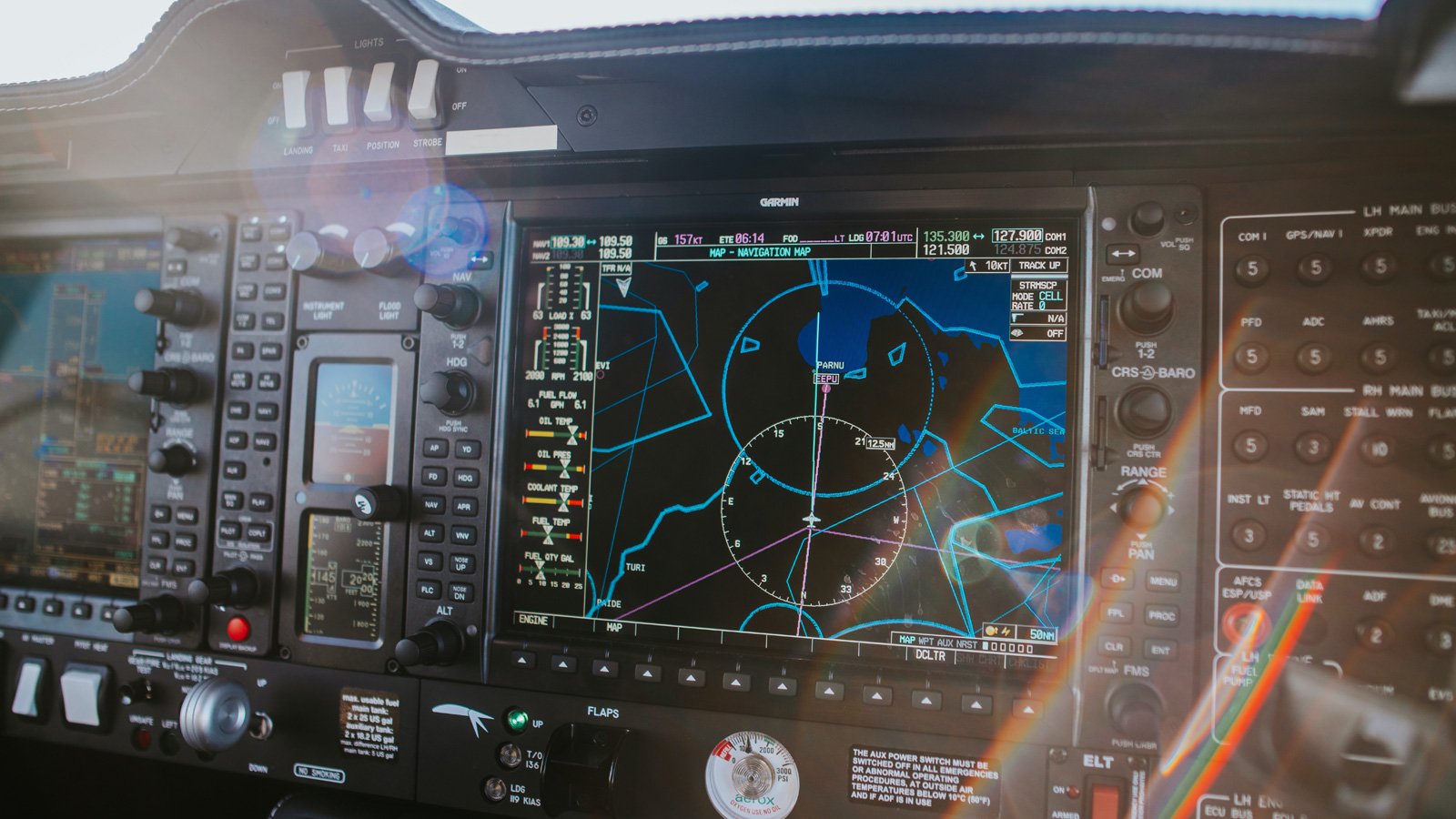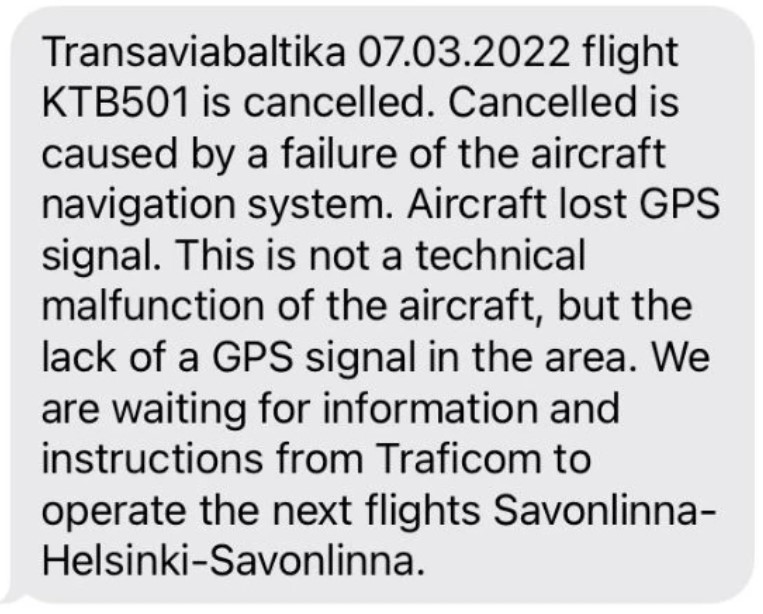
Finland's Transport and Communications Agency, Traficom, has issued a public announcement informing of an unusual spike in GPS interference near the country's eastern border.
The origin of the interference remains unknown, but based on numerous reports submitted to the agency from various sources, it has started during the weekend and is still ongoing.
This has resulted in issuing NOTAMs (notices to airmen) to raise pilot awareness and help them take additional measures to keep flights safe.
Notably, on Sunday, several Transaviabaltika planes flying to Savonlinna, Finland, were forced to return to Tallinn, Estonia, due to a failure in the onboard GPS navigation system.

Traficom's Director, Jari Pöntinen, commented the following:
Flying is still safe. Airlines have procedures they follow if the GPS signal is lost. Aircraft can use other systems to navigate and land safely. Air traffic control supports aircraft pilots with the help of other landing systems.
As the agency's announcement concludes, the source of the interference is difficult to determine from the ground, as the inserted signals are targeted on the air, and their effects are so momentary and local that any verification is practically impossible.
GPS spoofing
GPS (global positioning system) is a radio-navigation system relying on a link of four or more satellites that beam geolocation and time information to the receiver.
If something interrupts that link or hijacks the receiver's focus to a ground-based system disguised as a GPS satellite, the navigation becomes unreliable.
This spoofing is relatively easy because the actual GPS signal is weak, and receiver antennas aren't sensitive.
The equipment required to perform these spoofing attacks costs a couple of hundred USD, while the software to simulate realistic GPS satellite radio signals is generally widely available.
For example, a 1KW portable jammer can block a GPS receiver from as far away as 80 kilometers, so there are not many practical challenges in launching these attacks.
What could be causing it
GPS spoofing has been used in targeted high-stake attacks such as yacht hijacking, but it's generally a tactic followed by the army.
There have been previous reports of navigation problems of several ships in the Black Sea, linking Russia to the 2017 incident.
In December 2017, Norwegian authorities accused Russia of widespread disruption of GPS navigation during military drills. In November 2018, NATO military exercises in Finland faced similar problems.
This time, the interference coincided with the meeting between U.S. President Joe Biden and Finland's President Sauli Ninisto. At this time, the country mulls joining NATO, which is not met with enthusiasm in Kremlin.
According to reports, the interference isn't limited to Finland but also affects Poland, Lithuania, Latvia, and the broader Baltic region.
I thought making maps of GPS/GNSS interference might turn out boring. But 3 days ago suddenly the Baltic (Poland, Lithuania, Latvia, Kaliningrad) started having some of the most significant interference on the planet, after weeks of nothing unusual. Why now? pic.twitter.com/Hnwh6Hgjmk
— John Wiseman (@lemonodor) March 7, 2022
At this time, no official attribution has been made by any of the affected countries, while the Finnish authorities stated they are still investigating the ongoing problem.
Can this security problem be solved?
GPS spoofing is hard to stop because the signal the satellites emit from low-Earth orbit to potentially add encryption and certificates cannot be changed.
The only way to deal with this on the ground is by incorporating GPS firewalls on the receivers and implementing multi-array antennas to introduce a directional verification factor for the signal.


Comments
Frank134 - 2 years ago
I wonder who this could have been?
ShiroTheHiro - 2 years ago
Seriously. I read the first paragraph and went duh. Not the first time a certain country has DoSd GPS.
I'm interested in knowing whether Glonass is still working as well. I think that would pretty conclusively tell us who is causing it and for what.
Not that it's not obvious already but....
ShiroTheHiro - 2 years ago
Are you kidding me. This if fairly obvious as to what/who is causing the issue.
Eastern / south eastern only...
"Randomly" started, but now consistently occuring.
Conflict in the region....
Hmmm. No idea why this could be happening in this one single place. So curious.